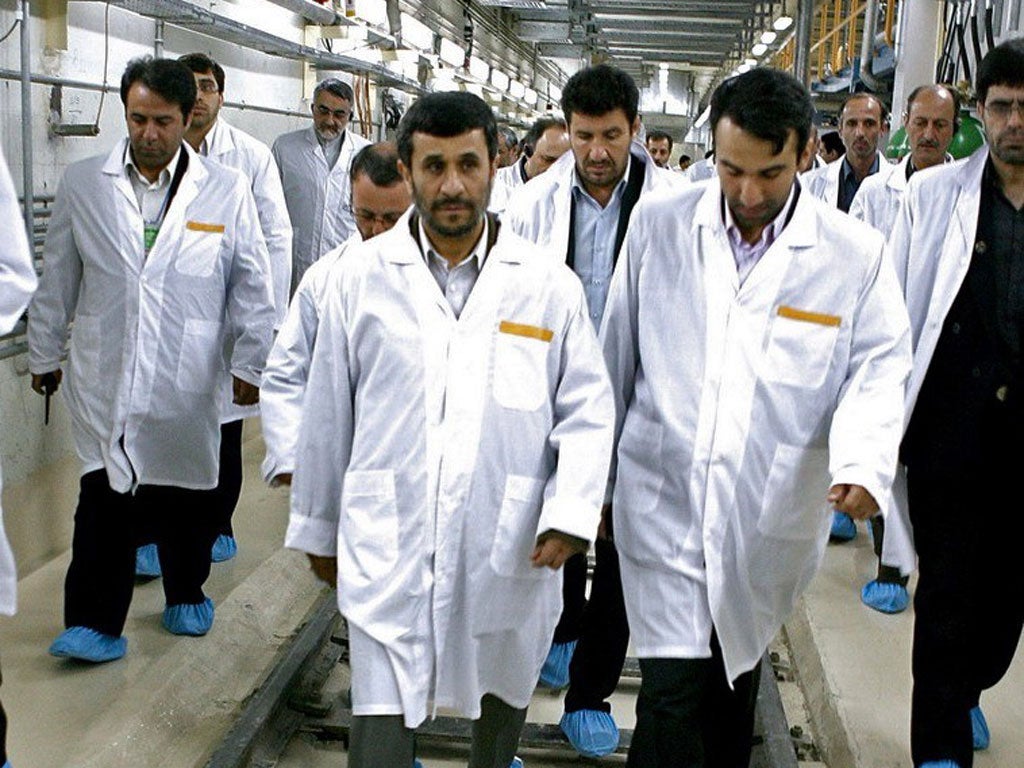Exclusive: PM on standby to send warplanes to Gulf as Iranian tensions rise
Cameron weighs use of jets amid fears move could inflame situation

Britain is considering stationing warplanes in the Persian Gulf as the confrontation with Iran over its nuclear programme continues amid rising tension in the region, The Independent has learnt.
The possible deployment of the Eurofighter Typhoons follows talks with the United Arab Emirates to bolster the UK’s presence in the region at a time when Israel is threatening military strikes against Tehran and much of the Middle-East is in turbulence in the aftershock of the Arab Spring and Syria’s civil war.
The decision on whether to send the planes at such a volatile time will be made by David Cameron, after further talks with the rulers of Dubai and Abu Dhabi, and an announcement is expected to be made in the near future.
The arrival of British aircraft is bound to fuel the Iranian sense of insecurity even if there are assurances that the move is not aimed at them. The Defence Secretary Philip Hammond yesterday said European nations must be prepared to “take a bigger role in relation to North Africa and the Middle East”.
Israel, whose Defence Minister Ehud Barak is in London at the moment with the Iran crisis the main topic of discussion, is said to be “fully aware” and supportive of the discussions over the warplanes.
The British Government has urged Israel to exercise restraint over Iran, pointing out that sanctions are having a crippling effect on the Iranian economy – with the fall-out from the punitive measures making the government of Mahmoud Ahmadinejad increasingly unpopular and creating frictions in the ruling hierachy.
However, at the same time, UK military commanders are looking at the possibility of sending British jets to a base in Abu Dhabi which is currently being used by American and French forces as a confidence building measure but also, crucially, in case there are attempts by the Iranians to block the Strait of Hormuz, the waterway through which 40 per cent of the world’s oil supplies are shipped.
The Ministry of Defence said in a statement: “The UK regularly deploys Typhoon to UAE as part of our routine exercise programme and to demonstrate our military commitment to UAE and the security of the wider region. We have a mutual interest with our GCC [Gulf] partners in ensuring peace and stability in the region, and exercises such as this allow us to practice working together.” The MoD added: “These deployments are not due to our concerns over Iran’s nuclear programme. As we continue to make clear, the Government does not believe military action against Iran is the right course of action at this time, although no option is off the table.”
However, The Independent has learnt from highly senior military and diplomatic sources that the Al Dhafra airbase, 20 miles south of Abu Dhabi, is being looked at as a possible station for the Typhoons. The base is in use by French Mirage fighter-bombers as well as the 380th Air Expeditionary Wing of the US Air Force with jets and Patriot missile batteries and well located for operations in the Gulf.
Tehran has been bitterly critical about the American and French presence in the Gulf saying that it was an attempt to intimidate and that it posed a threat to their national interests.
Mr Barak said in London this week that Iran appears to have pulled back from proceeding full-steam to acquire nuclear weapons. But he reiterated Israel’s determination to carry out a military strike without warning if it felt this was necessary and met senior British military commanders as well as ministers.
One senior British officer said: “We do not think there is any need for military action at the moment. But we are considering all eventualities and where the UK should position itself. The decision on deployment will be made on mutual interest and growing interdependence between the UK and the UAE in the long-term.”
It has not yet been decided which country would pay for the Typhoons’ presence. However, the UAE government picks up the operational costs for the French, which has been variously estimated to be between €20 million and €45 million per year.
The UK has carried out two air exercises with the UAE, one codenamed Al Khanjar in 2010, involving Eurofighter Typhoons, and another one this year, with Tornado GR4s. The Tornados are, however, being phased out by 2019 and BAE has stated that the UAE has “real and genuine” interest in buying 60 of its Typhoons in preference to the French Dassault Rafale.
A massive contract for the Indian Air Force has gone to the the Rafale instead of the Typhoon, but British military commanders insist the Typhoon deployment to Abu Dhabi is guided by strategic rather than commercial considerations.
Weapon of choice: Eurofighter Typhoon
The Eurofighter Typhoon, introduced in 2003, was the result of an ambitious project by the governments of the UK, Germany, Italy and Spain to build the most advanced multi-function fighter jet in the world. Despite coming in almost 75 per cent over budget and being delayed several times, the jet is seen as a technologically advanced modern aircraft with few rivals.
The Typhoon's performance in the Libyan conflict last year, where it flew over 600 missions, earned it plaudits – and interest from the governments of India and Brazil. With a top speed of 1,320mph and impressive manoeuvrability in the air, the Typhoon has often been compared to the US Air Force's F-35 fighter jet. In 2007, Saudi Arabia confirmed it had signed a £4.43bn contract for 72 Typhoons.
Join our commenting forum
Join thought-provoking conversations, follow other Independent readers and see their replies
Comments
Bookmark popover
Removed from bookmarks